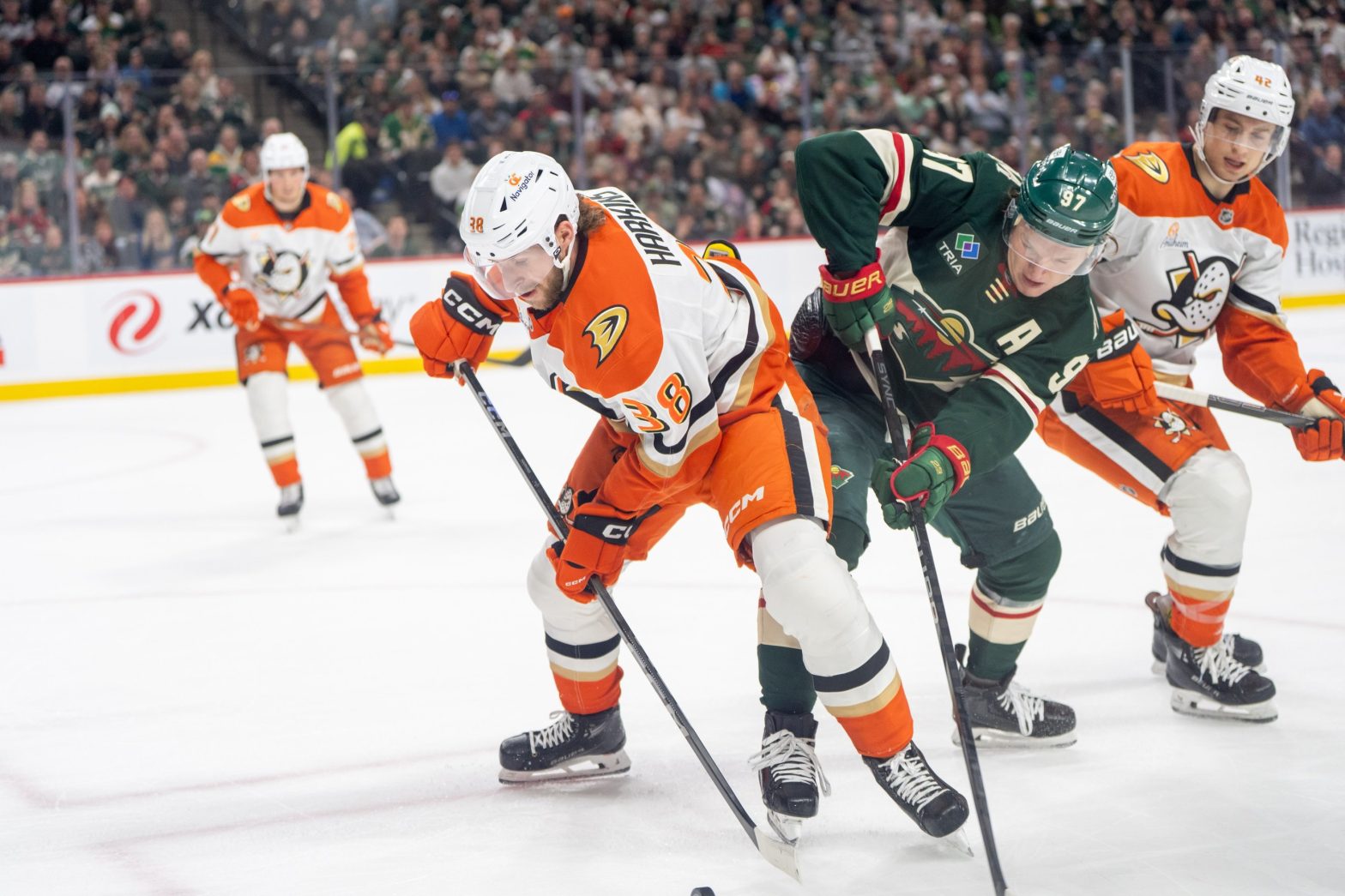The Minnesota Wild finally made the playoffs. Once they earned the loser’s points in the Anaheim Ducks game, they ensured they would chase the Stanley Cup for the 10th time in the past 13 seasons, drawing an opening round matchup with the Vegas Golden Knights.
When the Wild take the ice for the first game of the series, there’s no guarantee the team that surged out to become the best team in the NHL in November will begin an unexpected march to a championship. However, one thing is certain.
The Wild (and the rest of the NHL) may have benefited from a different playoff format.
The NHL changed its playoff format for the 2013-14 season, with divisions taking priority over conference record. The change was intended to create more important divisional matchups during the regular season and lasting rivalries when they met in the playoffs.
If we look at the main objective, the playoffs have been a success. The Wild haven’t made it to the conference finals since before the format change. Still, they’ve built animosity with their Central Division rivals as they became a consistent playoff team.
Many of those meetings took place with the Chicago Blackhawks. Patrick Kane and Jonathan Toews became mortal enemies in Minnesota during the mid-2010s. They foiled Minnesota’s most likely team to make a run, defeating the Wild on a bad bounce off the end boards in Game 6 of the Western Conference semifinals.
The playoff format also intensified the Dallas Stars rivalry. This rivalry didn’t need much to get going because Norm Green relocated the North Stars in the early 1990s. But it also hasn’t seen Minnesota get its revenge, losing six-game playoff series to Dallas in 2016 and 2023.
Then there’s the St. Louis Blues, who defeated the Wild in five games in the 2017 playoffs and in six games during the 2022 campaign. The Winnipeg Jets beat Minnesota in the Ope, let me sneak past ya there series. The Wild and Jets look like friendly neighbors on a combo drive from I-94 to I-29, but the Jets gained the upper hand with a 4-1 win in 2018.
These rivalries feel like the ones Bettman was trying to recreate when the NHL had the Adams, Norris, Patrick, and Smythe Divisions until 1993. However, the Prince of Wales and Clarence Campbell Conferences gave way to the Eastern and Western Conferences — or so they thought.
When the Wild arrived as part of the NHL’s expansion wave to begin the 2000s, they immediately had a playoff series with the Colorado Avalanche. As Northwest Division rivals, there was already a Can you please be mean to each other? element to the matchup. However, things became heated when Andrew Brunette sent Patrick Roy into retirement with an overtime goal in Game 7 of the Western Quarterfinals.
Eleven years later, the Wild earned another playoff series win over the Avalanche when Nino Niederreiter buried a Game 7 overtime winner at the Pepsi Center. These two teams can’t stand each other, and it was a manufactured rivalry when the league launched its current playoff format.
But then an organic rivalry formed. The Wild took on the higher-seeded Vancouver Canucks which may have been the most heated playoff series in franchise history. After jumping out to a 3-1 lead, the Wild stole Game 5, Vancouver blasted them in Game 6, then blew a 2-0 lead in Game 7 to create a new rivalry.
It didn’t matter that half the games began at 9:30 pm. Wild fans hated the Canucks. Even though they would remain in the Northwest Division for a decade, the rivalry eventually dissipated after Minnesota formed Central Division rivalries.
This illustrates the problem with the current format. It creates regionalized rivalries that inspire fans to make the short trips to see their teams play. However, it also removes the possibility of creating new ones with teams they may not see otherwise.
How much fun would it be to see the Wild go up against Connor McDavid for seven games? Or even rekindling a rivalry with Vegas that seemed to be born in a seven-game playoff series in 2021? The Wild will have the chance to do the latter, but only because they benefited from the NHL’s wonky wild card rules, which allow each team to play in a different “divisional” bracket.
This is good news for this team, which avoids the Presidents Trophy-winning Jets in the process. However, it also deprives fans of exposure to new teams and new rivals during the NHL’s showcase moments.
Another flaw is that the best teams get knocked out early in the playoffs, such as the 2021-22 Wild team that the Blues knocked out in the first round. But a novelty in the playoffs would be nice in a format that allows the Edmonton Oilers and Los Angeles Kings to meet for the fourth straight year.
Then again, this is a league that is reluctant to change. After a year away, the Wild will have to figure out how to beat Vegas as a wild card to reach the Stanley Cup Playoffs.
Think you could write a story like this? Hockey Wilderness wants you to develop your voice, find an audience, and we’ll pay you to do it. Just fill out this form.
https://hockeywilderness.com/news-rumors/minnesota-wild/the-wild-and-the-rest-of-the-nhl-would-benefit-from-a-different-playoff-format-r30632/
